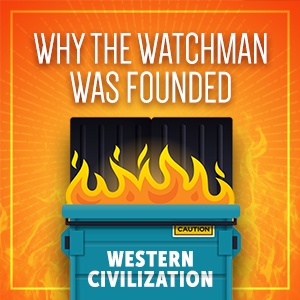
According to historical records, the first states emerged in Mesopotamia, around the area of modern-day Iraq, approximately 6,000 years ago, developing complex societies and political structures that marked the beginning of statehood.
An emergence of a State, as a complex institution, refers to the government of a nation viewed as a multifaceted system made up of interconnected parts like the legal system, bureaucracy, military, and various administrative bodies; all working together to govern a population within a defined territory, and requiring an intricate web of coordination to function effectively.
With the emergence of a state, government corruption, embezzlement, frauds and other human violations also appeared. Unfortunately, mischievous evils, grid, corruption, deception and other human folie are an integral part of human nature and vice behavior.
In our country, the Trump administration already has uncovered a massive corruption buried in federal institutions. These revelations reverberate corruptions of the past masterfully described by a prominent Russian writer Nikolay Gogol (1809-52) in his novels “Dead Souls” and “The Inspector General.”
It remains to be seen what and how many “dead souls” will be uncovered in the coming weeks or months in the dark burrows [of U.S. federal agencies]
In this essay, I will treat the two literary works as part of the author’s overall critique of Russian society at that time, and then show how corruption is endemic in human society by comparing Gogol’s descriptions to what the Department of Government Efficiency (DOGE) has uncovered in an advanced modern society – the U.S.A.
“Dead Souls” is a classic, first published in 1842, and widely regarded as an exemplar of 19th-century Russian literature. It chronicles the travels and adventures of medium-size landlord Pavel Chichikov (a main character of the novel) and the people whom he encounters. These people typify Russian middle aristocracy of the time.
In the Russian Empire, before the emancipation of the serfs in 1861, landowners had the right to own serfs to farm their land. Serfs were typically considered property of the landowner, who could buy, sell or mortgage them, like any other chattel. To count serfs, the classifier “soul” was used: e.g., “six souls of serfs.”
The plot of the novel relies on “dead souls” (i.e., “dead serfs”) which are still accounted for in property registers. On another level, the title refers to the “dead souls” of Gogol’s characters, all of which represent different aspects of vulgar morality and spirituality, with overtones of middle-class pretentiousness, fake significance and philistinism.
In short, “Dead Souls” is a novel about corrupt Russian Imperial society. Through the devices of absurdity and satire, Gogol aimed to critique the anxieties and inefficiencies of tsarist Russia – a courageous endeavor at that time. Also, through deliberately absurd and sometimes surreal scenarios, Gogol tackles morality, spirituality and social problems of corruption and rot.
Certainly, the far-left federal bureaucrats are in a panic now – and they should be.
The book describes how Chichikov buys “dead souls” (i.e., the legal rights to deceased serfs) from the owners of the provincial villages, because he plans to use them as a collateral to secure large loans from the government, essentially creating wealth by exploiting a loophole in the system where the state still considers deceased serfs as part of a landowner’s taxable property, therefore, allowing him to appear significantly wealthier than he actually is.
In retrospect, there is a remarkable applicable to today’s discoveries by D.O.G.E. within U.S. federal agencies; so far including Social Security Administration and the U.S. Agency for International Development (USAID). It remains to be seen what and how many “dead souls” will be uncovered in the coming weeks or months in the dark burrows of the Medicare, Medicaid (health care for low-income individuals), Supplemental Security Income (SSI), National Science Foundation, National Endowment for the Humanities, FBI, CIA, IRS and others; and thousands of nonpartisan government institutions and nonprofit entities.
“The Inspector General” is a satirical play by Gogol. Originally published in 1836, is a comedy wherein Gogol brought Russian characters to the stage and exposed public vices and social ulcers: bribery, embezzlement, bureaucracy, corruption, and human folly of 19th century Russia.
The play begins with the mayor of a small Russian town urgently gathering local officials in his home. The mayor announces that an inspector from St. Petersburg is coming to investigate the officials — as today’s DOGE is designated to investigate government officials in our country.
ALASKA WATCHMAN DIRECT TO YOUR INBOX
The mayor tells the officials that the inspector is coming with secret instructions, and he warns officials to hide evidence of corruption. Subsequently, in panicking, the judge worries that the inspector’s visit means Russia is going to war. The postmaster hysterically exclaims that Russia must be going to war. The mayor instructs the Warden of Charities to make the charity hospital look presentable. The mayor orders the Chief of Police to station constables around town, and so on.
Gogol’s novels are a remarkable resemblance and reverberation of today’s America. Certainly, the far-left federal bureaucrats are in a panic now – and they should be.
Historically, there have never been entirely crime-free and corrupt-free societies in the world. Also, it is naïve to believe in the absolute perfection of human nature, for a mischievous evil hides in all of us, which is suppressed by good intentions and Judeo-Christian moral values.
Indeed, a constructive and nonpartisan government mechanism must be established in our Constitutional Republic with a monumental task for uncovering and preventing government corruption and inefficiencies at all levels and in all institutions. Today, it is a newly created DOGE that fulfills its purpose.
The views expressed here are those of the author.








8 Comments
The Alaska-Siberia research center is another government blackhole that needs defunding.
David, Alaska-Siberia Research Center was a nonprofit 501(c)(3) organization that functioned from 1990 to 2022. It was not founded by the government. We managed Alaska-Siberia WWII Lend-Lease memorial in Fairbanks using government funds.
Consequence! Or the lack there of. The machine known as the state does not inflict justice on the administrative state when it is corrupt because those charged to do so are often either compromised or work under someone that is. An example is a Contract representative that oversees the operation of often poorly written and negotiated contracts is often powerless to call out fraud waste and abuse. Doing so puts themselves in the cross hairs. If there was actual negative consequence for looking the other way or targeting the person calling out the waste this might change but the state has become its own special interest group for those that run it. Payouts to political members is the norm. Look at Anchorage that pays a former Mayors company an inflated price to house homeless. There are charities doing it much cheaper but they are not owned by a Democrat politician.
“the Trump administration already has uncovered a massive corruption buried in federal institutions.” Statements like this only serve the dictatorship. Gullible readers here respect the author and will accept his claims. There is no evidence of massive corruption found. Patriots should defend truth.
Manny,
Try to keep up.
What is being exposed now is something that many have known for a long time, but simpletons like you just would not listen.
Now it is time for you to take it all in. We the people voted for this. Sit tight, buckle up and enjoy the show.
When you say we the people voted for this, I detest you even more
Deep state leftists are more than a little worried right now! They’ve never seen government leashed and put at the service of the taxpayer.
Your email says DODGE! THat’s what leon and the felon are doing. Dodging taxes so the someone who is not rich pays more.